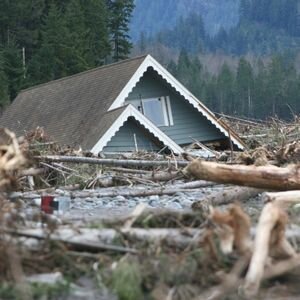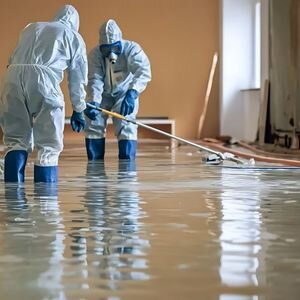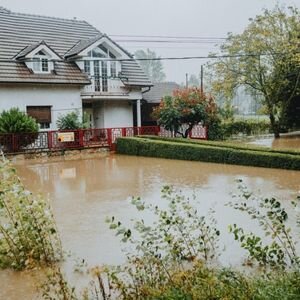
Selling a house with flood damage in Raleigh, NC, presents unique challenges, but don’t be discouraged. This guide is designed to navigate you through each process step, offering practical insights and strategies tailored to the local market. From understanding floodplain regulations to presenting your home in its best light, we’ll equip you with the necessary tools to maximize your property’s value. Whether you’re dealing with minor water issues or significant structural concerns, our tips will help you successfully market your property and connect with the right buyers.
Understanding the Impact of Flood Damage on Your House

The damage and loss to a home’s value and structure caused by floods can be devastating. Particularly in disaster-prone areas like Raleigh, NC, it is critical to understand the effects of flood damage on your property. Not only must the obvious damage be evaluated, but also the potential impact of flooding on your property’s market value and the specific areas impacted. Navigating the intricacies of real estate transactions while making educated selections is crucial for a smooth sale, making sure your flood-damaged house looks as enticing as possible to potential purchasers.
How Flooding Can Affect Property Value
The introduction of water into a property can have a profound impact on its market valuation. Flooding leaves a trail of destruction that can drastically alter a water-damaged home’s worth. Whether the foundation’s integrity has been compromised or substantial damage has been caused to essential systems, such as electrical and plumbing, these factors can reduce the overall appeal of a flood-damaged house. In Raleigh, North Carolina, where flood risk isn’t uncommon, sellers must know how these factors affect property value. Working with experienced cash home buyers in Raleigh can help you avoid long delays and sell your home more efficiently despite its flood history. Buyers are particularly wary of water-damaged properties, as they often account for future risks and potential issues when purchasing.
Water damage affects the immediate visual appeal and results in long-term consequences that could deter prospective buyers. The invisible damages, such as mold growth and structural weakening, which stem from prolonged exposure to moisture, are of grave concern. Such hidden threats not only impact the safety and livability of the house but also necessitate extensive, often costly damage repairs. Potential buyers need reassurance that any issues have been comprehensively addressed, making full disclosure and detailed inspection reports an integral part of the selling process in real estate.
Additionally, how the local market views properties that have been damaged by water might have an impact on their value. Homes in flood-prone areas, like Raleigh, might lose value due to the negative connotations people associate with them. Even if the flooded homes are more reasonably priced, buyers may still choose the ones that have never been in flood. To make their damaged house more appealing compared to others in the market, sellers typically have to adopt strategic pricing methods. It may be necessary for sellers to emphasize additional desirable features of the property or suggest possible improvements in order to increase its attractiveness.
Understanding these forces and how flooding affects both buyers and sellers emotionally makes deals more open and caring. It will give sellers a better position when talking to potential buyers, making sure they can clearly explain the home’s current state and any repairs they’ve made to lower the risk of flooding in the past. Finally, this helps people have realistic standards so that they can sell their home, even if flooding causes problems.
Identifying the Extent of the Damage
Once flooding has occurred, a thorough damage assessment is the cornerstone of any effective repair and selling strategy. Determining the scope of the impact on your water-damaged home helps inform subsequent decisions about how to proceed with repairs and how to communicate these to potential buyers. It should be noted that water intrusion can affect various components of a house, ranging from the foundation to interior spaces, making it essential to inspect these areas thoroughly.
Flood damage manifests in various forms, with some consequences being immediately visible while others are more insidious. For instance, structural compromises are among the most critical factors to address. Flooding can undermine foundational stability, causing shifts or cracks in the house that might not be evident without professional evaluation. Similarly, drywall and insulation absorb moisture quickly, leading to mold development and necessitating prompt replacement to prevent health issues or further property depreciation.
Flood damage can have a big impact on important house systems in addition to structural damage. Corrosion or short circuits could damage electrical wiring, and plumbing systems could be broken or contaminated. A professional inspection can assist find problems that need to be fixed right away to provide potential buyers peace of mind that the home is safe and works. In addition, homes in areas with a high danger of flooding, like North Carolina, should have a clear flood history. This will help purchasers understand any problems that have happened before and prepare them for problems that may come up in the future.
When selling a house that has been damaged by water, it’s important to have the right paperwork and be open about everything. Sellers should try to give buyers specific documentation and insurance claims that show how bad the damage was and what efforts were taken to fix it. This openness makes potential buyers more likely to trust you and makes the selling process easier, which lowers the chance of problems and arguments after the sale. It is a good idea to have a trustworthy real estate agent who knows about problems that can happen during floods to help you through these steps and make sure that all disclosures are legal.
Ultimately, by addressing these critical aspects of water damage and effectively communicating the status and potential of your home, you enhance the chances of a successful house sale. Buyers value honesty and clear insights into what they’re investing in, so by proactively managing the impacts of flooding, you pave the way for smoother negotiations and transactions. For more insights into the local housing market, take time to Discover Fascinating Real Estate Facts About Raleigh, NC and see how the city’s trends may influence your selling strategy.
Immediate Steps to Take After Flooding

After floods in Raleigh, NC, homeowners have the hard job of making sure no more damage happens and that everyone is safe. Immediate efforts can have a big effect on the outcome of future repairs and the property’s resale value. This approach includes figuring out how bad the harm is and when to get help from an expert. Taking care of these tasks quickly can also help reduce the stress of selling a house that has been damaged by a flood, which can help the real estate transaction go more smoothly.
Minimizing Damage to Your Home
Minimizing damage to your home after flooding starts with swift and informed decision-making. The primary goal is to prevent secondary damage that can exacerbate problems in an already water-damaged property. Start by turning off the power supply to prevent electrical hazards. Even minor flooding can create dangerous conditions, so it’s crucial to address electrical issues immediately. Please remove any standing water at your earliest convenience. A water pump or a wet vacuum can help. Still, safety measures should be in place before entering. It is essential to remember that remaining water can quickly lead to mold growth, which depreciates the house’s market value and poses health risks to occupants.
Once the immediate threat is mitigated, remove any soaked items like carpets, furniture, and drywall. These materials can harbor moisture and lead to mold development, further undermining the structural integrity of the flood-damaged house. As you assess these belongings, decide which items can be salvaged and which must be discarded. Furniture and appliances might be recoverable with professional cleaning services, but always prioritize health and safety.
Documentation is a critical step in managing this process for insurance claims and eventual disclosure to potential buyers. Taking photographs and keeping a log of all actions post-flooding can support insurance claims and give buyers transparency. Insurers and buyers alike are more responsive to detailed documentation demonstrating the home’s condition and the remedial actions implemented, reinforcing trust during real estate negotiations.
Also, think about how the environment in your location of North Carolina affects you. Raleigh is prone to flooding, so knowing how the weather changes in your area might help you get ready for the future. Make your home and yard more flood-resistant and make modifications that can appeal to purchasers who care about the environment. Raising utilities and using materials that don’t get wet can make a property more durable, which makes it more appealing in a market that is skeptical of houses that have been destroyed by water.
By addressing these critical steps, you protect your home and its inhabitants and strengthen your position when presenting your property in the real estate market. Efficiently minimizing additional damage highlights an advantage in the competitive North Carolina housing market, envisaging a smoother, more successful sale process. It reflects a proactive approach, which buyers often appreciate, as it demonstrates commitment to maintaining and preserving the home despite the challenges of flood damage.
When to Contact Professionals for Damage Repairs
If your house has been damaged by a flood, it’s important to know when to call in the pros to fix it. Some homeowners may try to fix small things themselves to save money, but the complicated nature of water damage, especially in places like Raleigh, means that they typically need professional help. Professionals have knowledge and access to specific tools that can greatly improve the quality of repairs and make sure that they follow local real estate rules.
Immediately after a flood, once safety is secured, reaching out to a qualified water damage restoration service should be a priority, especially if the water damage is extensive. These professionals will perform a thorough evaluation, identifying underlying issues that might not be visible to the untrained eye. They are trained to spot signs of structural compromise, mold development, and electrical hazards, risks that could further devalue the home if left unaddressed. Moreover, certified technicians can guarantee that repairs are performed according to the highest standards, which can directly influence the resale value and buyer confidence.
In North Carolina, homes with a flood damage history may face skepticism in the real estate market. However, by showcasing detailed repair records from licensed professionals, sellers can alleviate buyer concerns regarding long-term livability and safety. Professional repair services often provide warranties for the work performed, which adds another layer of reassurance to prospective buyers, enhancing the appeal of a previously water-damaged property in the competitive housing market.
Furthermore, navigating insurance claims can be daunting without professional guidance. Many restoration companies assist homeowners in managing claims efficiently, ensuring that all damage is documented accurately for insurance purposes. This assistance can expedite claim settlements, providing the necessary funds for substantial repairs more quickly. A detailed assessment and restoration process also ensures full disclosure to potential buyers, a crucial aspect of North Carolina’s real estate transactions.
Professional intervention provides stability by verifying that necessary damage repairs are comprehensive and well-documented. This thorough approach can significantly affect the speed and effectiveness of a property’s sale in flood-prone areas like Raleigh. Professional services represent not just an expense but a vital investment in sustaining the value and safety of a flood-damaged home. This proactive repair strategy helps sellers to meet legal disclosure obligations while setting their house up for a successful sale.
How to Sell a Flood-Damaged House in Raleigh

Selling a flood-damaged house in Raleigh, North Carolina, poses particular problems, yet a successful transaction is possible with the right strategies. To better understand how our process works, you can explore our step-by-step guide that makes selling simpler, even with flood damage involved. From understanding the benefits of working with a real estate agent to setting a competitive price, knowing these key aspects can make a significant difference. Mitigating the perception of risk associated with water-damaged properties and strategically positioning your home in the market ensures you attract the right buyers. Leveraging expert guidance and setting a realistic asking price are critical steps in overcoming potential hurdles in selling a water-damaged property.
Benefits of Working with a Real Estate Agent
Engaging with a professional real estate agent offers numerous advantages when selling a flood-damaged house. These experts bring knowledge specific to the local Raleigh market, where flooding incidents might deter potential buyers if not handled strategically. Real estate agents are invaluable in guiding sellers through the complexities of showcasing a water-damaged home. At the same time, partnering directly with Cardinal Home Buyers in Raleigh can give sellers another trusted option for navigating these challenges efficiently. Their experience selling similar properties gives them insight into effective marketing tactics and buyer expectations. Moreover, agents assist sellers in preparing comprehensive documentation that includes disclosure statements and repair histories, which builds trust with prospective buyers by providing transparency about past flood impacts and their subsequent repairs.
One of the main benefits of working with an agent is their ability to effectively negotiate the sale of your flood-damaged house. Real estate agents possess the skill to position the property appropriately, highlighting any renovations or flood prevention measures undertaken. By stressing the improvements made to mitigate future flood risks, agents can help reshape a buyer’s perspective, focusing on the home’s resilience rather than its past vulnerabilities. Additionally, their professional networks often include buyers looking for investment opportunities, who might be more inclined to purchase a water-damaged home due to its lower price than flood-free houses.
Attracting cash buyers or investors ready to take on a property with a history of water damage requires a real estate agent’s savvy pricing technique. They are familiar with the complexities of setting a fair price for a water-damaged property without sacrificing its worth. This equilibrium is critical for maximizing buyer interest and minimizing the stigma associated with flood-damaged properties, both of which contribute to a quick sale. In states like North Carolina, where prospective homeowners may worry about future floods, real estate agents are experts at calming their clients’ fears. They can assuage concerns and inspire trust in the investment by highlighting the property’s long-term advantages and appreciation potential in the Raleigh market.
Furthermore, real estate agents facilitate the legal processes of selling a flood-damaged home, ensuring compliance with North Carolina’s disclosure laws. Their expertise streamlines the transaction, minimizing stress for sellers by handling complex paperwork and negotiations. Ultimately, partnering with a real estate agent can transform the challenging process of selling a water-damaged home into a more manageable and rewarding experience. Their seasoned perspective and proactive strategies enhance the likelihood of attracting suitable buyers and closing a successful deal. As such, engaging a professional agent is smart for anyone navigating the sale of a flood-damaged house in Raleigh.
Setting a Competitive Price for a Water-Damaged Home
Pricing a water-damaged home correctly is pivotal in ensuring its sale in Raleigh’s competitive real estate market. A flood-damaged house comes with inherent challenges, and setting the right price requires a strategic approach to balance buyer interest and financial recovery. A well-considered price will reflect the extent of the damage, the repairs carried out, and any improvements to mitigate future flooding risk. In North Carolina, where flood risk is a valid concern, a carefully set competitive price can be the distinguishing factor that attracts cautious buyers.
One strategy in setting a realistic price involves conducting a detailed assessment of the water-damaged property’s condition, focusing on visible and hidden damages. This includes evaluating structural integrity, mold presence, and the functionality of essential systems like plumbing and electrical. Gathering this data helps determine the extent of the depreciation caused by flooding while highlighting investments made in repairs or upgrades. By cataloging these aspects, sellers can present compelling evidence to potential buyers, showing the property’s readiness for habitation and minimizing concerns about flood damage.
The next step is to research the local market and compare similar water-damaged properties in Raleigh. Real estate agents can provide insights into recent sales, which help establish a baseline for pricing. This comparative analysis reveals what prices buyers are willing to pay for similar homes, allowing sellers to position their property effectively without pricing themselves out of the market. By setting a fair price that accounts for the property’s condition and the prevailing market trends, sellers can pique buyer interest while ensuring they receive a fair return on their investment.
It’s essential to remember that setting a competitive price extends beyond just appealing to conventional buyers. In cases of flood damage, the target market may include real estate investors and cash buyers looking for properties with renovation potential. For homeowners outside Raleigh, companies like ours that say we buy houses in Fayetteville also provide fast solutions for selling flood-damaged properties. These buyers prioritize opportunity over immediate condition and benefit from a price point that allows additional improvements. By targeting these market segments, sellers can maximize reach and improve the likelihood of a sale, even if the home requires further refurbishment.
Pricing the water-damaged home competitively also forms part of a broader marketing strategy. Sellers should highlight unique selling points that differentiate their house from other water-damaged properties, such as new flood prevention features or proximity to desirable community amenities. The objective is to convince potential buyers that, despite its history, the home offers value and viability as a long-term investment. By accurately pricing the property and emphasizing its strengths, sellers can reduce time on the market and attract serious offers.
Ultimately, setting a competitive price is about aligning the water-damaged house’s market value with buyer expectations, ensuring that both parties can engage in a transaction that meets their needs. A meticulously considered pricing strategy facilitates a successful sale and enhances the property’s attractiveness in a discerning market. Thus, sellers can confidently present their flood-damaged home to buyers looking for an opportunity in North Carolina’s dynamic real estate landscape by carefully evaluating all factors and employing expert guidance.
Helpful North Carolina Blog Articles
- Selling Your Home And Relocating In North Carolina
- Selling A Home With Tenants In North Carolina
- Taxes When Selling Your House In North Carolina
- Selling Your Home Amid Divorce in North Carolina
- Selling A Fixer-upper Home In North Carolina’s Real Estate Market
- Selling A House While it is in Foreclosure in North Carolina
- Selling a Probate House in North Carolina
- Selling Your Home Without A Realtor In North Carolina
- Sell Your North Carolina Home With An Existing Mortgage
- Tenant Damage to Property In North Carolina
- Sell Your Home Despite Mold Issues in North Carolina
- Best And Worst Neighborhoods For Real Estate Investments In NC
- Property Tax Rates For Homeowners And Real Estate Investors In NC
- Understanding North Carolina Quitclaim Deed Rules
- Expert Property Management Services For Homes In North Carolina

| Aspect of Impact | Immediate Effects | Long-term Consequences | Considerations for Sellers |
|---|---|---|---|
| Property Value | Immediate devaluation due to visible damage | Potential for persistent lower market value due to flood history | Disclosure of flood risk and mitigation efforts may impact sales |
| Structural Damage | Long-lasting stigma affecting the desirability of the property | Ongoing issues with foundation stability and structural integrity | Engage professional inspection and reinforce structures to assure buyers |
| Home Systems | Damage to electrical, plumbing, and HVAC systems | Increased maintenance costs and reduced lifespan of systems | Consider upgrading systems to flood-resistant options |
| Market Perception | Negative immediate perception from potential buyers | Long-lasting stigma affecting desirability of the property | Emphasize proactive measures taken to prevent future damage |
